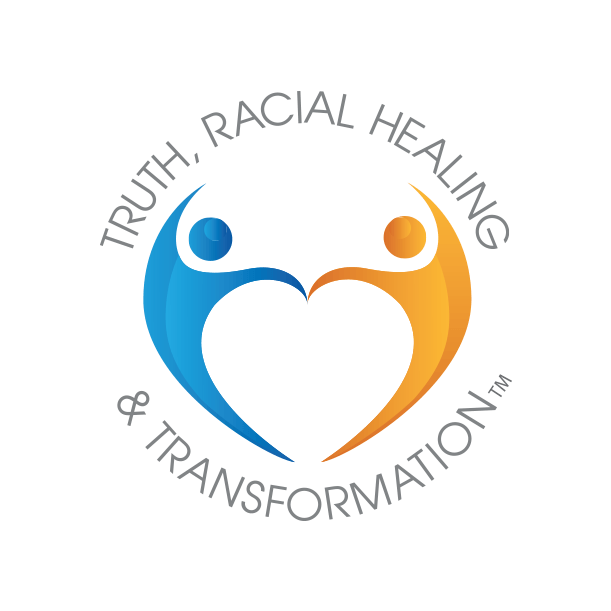The following communities and their coordinating organizations have undertaken a TRHT process with the following intentions:
-
State of Alaska
-
Battle Creek, MI
-
Baton Rouge and New Orleans, LA
-
Buffalo, NY
-
Greater Chicago, IL
-
Dallas, TX
-
Flint, MI
-
Kalamazoo, MI
-
Lansing, MI
-
Los Angeles, CA
-
Mississippi
-
Richmond, VA
-
Selma, AL
-
Saint Paul, MN
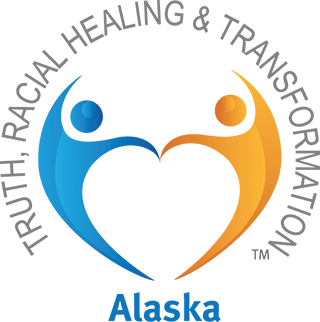
Starting in 2017, Alaska TRHT developed a relational platform for transformation, which included an extensive network of “accountability partners” or people with the power to transform systems. Accountability partners were asked to support efforts related to Indigenous language education; transformation of public education; and the advancement of policies that center Alaska Native stewardship and protect Alaska Native ways of being. In addition, they trained media outlets on racial equity and invited them to be accountability partners.

Battle Creek, Mich.
The intentional growth of the Battle Creek Coalition for Truth, Racial Healing and Transformation since 2017 has served as a launching pad for significant cross racial movement building work locally. With Battle Creek Community Foundation serving as the fiscal sponsor for this work, the Coalition for TRHT has convened and connected individuals and organizations seeking opportunities to advance racial healing and equity in the community. Partners operationalize shared values and commitment to the mission and work towards the transformative aspect of the TRHT model to shift power that will lead to systems change. Via a participatory strategic planning process completed in 2021, the volunteer Community Leadership Team of the Coalition identified the strategic priorities, goals and objectives for TRHT’s work in racial healing and relationship building; moving beyond separation; and promoting narrative change.
content_copyVisit Website
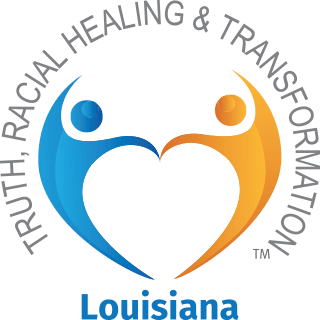
The Foundation for Louisiana (FFL) honors the knowledge and wisdom of local communities, addresses Louisiana's most pressing issues and invests statewide in work to advance freedom. TRHT New Orleans and Baton Rouge recognize that justice spaces, often made up of Black, Indigenous and people of color (BIPOC), are directly affected by inequitable systems that impact their ability to lead and sustain transformative change. TRHT addresses the racial healing and separation Pillars in both places by lifting up the pre-existing racial healing, healing justice and mutual aid efforts in communities. TRHT Baton Rouge and New Orleans piloted the Racial Healing Justice Practitioners Participatory Fund to resource healing practitioners who have already been embedded in the community. It allowed for improved access to healing and restorative services while advancing the goal of democratizing philanthropy in Louisiana. FFL will build on work done in TRHT Baton Rouge, developing leadership in housing and police reform and launch the next iteration of the TOGETHER Initiative: Leadership, Education, Advocacy, and Development (LEAD), which will focus on racial healing and healing justice. LEAD is a three-part strategy designed to strengthen residents' engagement in decision-making about issues impacting their communities.
content_copyVisit Website
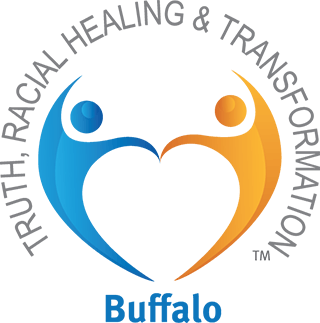
Every system that touches the lives of children and families is being influenced by TRHT Buffalo, including criminal & juvenile justice, workforce, family support, transportation, the corporate sector and faith communities. Acknowledging that inequitable practices in one system are reinforced by other systems, racial healing and transformation efforts have grown within and across each of these sectors.
content_copyVisit Website
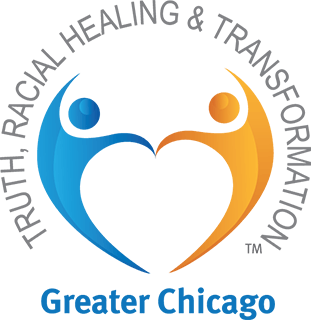
In 2017, 300 people from across the metropolitan region collaboratively developed a vision of Chicago without racism, defined community priorities and developed strategies to reach their goals. Racial healing was front and center through the training of healing practitioners from downtown through neighborhoods and into the suburbs in 2020. In 2022, collaborators began incorporating work in law and policy through the Truth, Healing and Equity Fellowship, which aims to build capacity for creating equitable organizations.
content_copyVisit Website
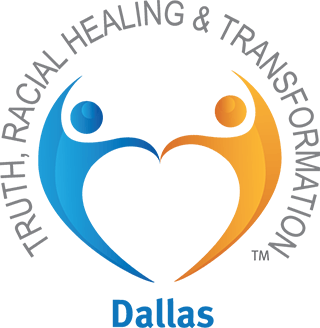
From day one, TRHT Dallas grounded their work in truth-telling, starting with compiling the racial history of the community, including documenting historical policies and practices. Collaborators engaged the community’s young people and representatives of law enforcement, philanthropy and virtually every sector in the community to envision “a radically inclusive” Dallas. This led to the creation of Racial Equity NOW, which builds the capacity of organizations and leaders around racial equity and policy implementation.
content_copyVisit Website

Flint, Mich.
There’s a growing synergy in Flint for lifting up truth-telling work and TRHT is the capstone to our healing efforts. Together with community partners, we are addressing systemic issues through truth-telling workshops, oral histories, historical neighborhood redevelopment and civic engagement.
The Community Foundation’s COVID-19 Taskforce on Racial Inequities early on recognized health disparities among people of color. Volunteers drafted a strategic plan to operationalize racism as a public health issue. Through committee work, volunteers were actively involved in public health outreach and advising grants for vaccine clinics, personal protective equipment and promotional campaigns.
Flint’s narrative change work continues as we share accounts of the history of Flint neighborhoods, the impact of Fair Housing legislation and current urban renewal development.
content_copyVisit Website

Kalamazoo, Mich.
Truth, Racial Healing & Transformation (TRHT) Kalamazoo, hosted by the Kalamazoo Community Foundation, approaches the five areas of the TRHT framework as interconnected. They have examined the relationships between the five areas and are applying the findings to build projects to support various intersections of the work. Racial healing and centering deep relationships continue to be at the core of their work while promoting collaboration across the county as the key to community transformation. Currently, TRHT Kalamazoo is addressing fair housing practices, eviction mitigation, examining local curricula for equity, transparency in the local criminal justice system, the needs of Black and Brown small business owners and creating a local history database. In addition, the Kalamazoo Community Foundation is using the TRHT framework to inform its public policy agenda to advance its vision of Kalamazoo County as the most equitable place to live by centering the needs of the residents of Kalamazoo County.
content_copyVisit Website

Lansing, Mich.
The One Love Global Center for Truth, Racial Healing & Transformation is a hub and learning community that celebrates Blackness, dismantles oppressive human hierarchies and upholds beloved community characterized by love, accountability, mutual support and creative cohesion. We center Black youth as leaders and build intergenerational power toward equitable policy and systems transformation at the intersections of educational, economic and environmental justice. Through racial healing circles, we ground our community in Indigenous practices and storytelling to see our common humanity and explore justice that heals. Highlights from our formative work implementing the TRHT process in Metro Lansing include launching the Lansing People’s Assembly, Freedom Summer Youth Organizing School, Lansing Racial Equity Scorecard, Racial Equity Accountability Process, and transformative partnerships with the local economic development formation, county prosecutor’s office, and school district.
content_copyVisit Website
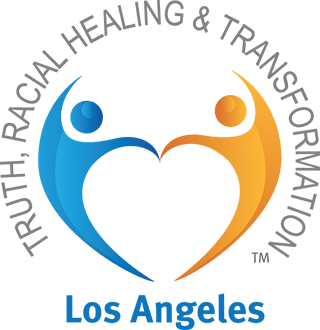
From 2017-2022, TRHT Los Angeles made significant advances in racial healing, narrative change and the economy. Building understanding of the racialized history of their area and ongoing impacts, they studied the incarceration of Japanese-Americans during WW2, the history of colonization and the 1871 Chinese Massacre. Collaborators successfully initiated a campaign leading to the recognition of three new public holidays and installation of new monuments and collaborated with the LA County Arts Commission and Echo Park Film Center on arts-based narrative change work. TRHT Los Angeles also offered implicit bias trainings across the philanthropy, nonprofit, corporate and business sectors and partnered with the LA Chamber of Commerce to advocate for immigrant workers and an inclusive workforce. Dialogues with grassroots organizations and members across various LA communities led to the formation of the first ever Los Angeles Office of Racial Equity.
content_copyVisit Website

TRHT Mississippi will focus on bringing people together to bridge divides by working with other organizations. Our goal is to broaden and deepen the community of people from across the state who are engaged in racial healing so that everyone can heal from the wounds of the past and build mutually respectful cross-racial relationships. We will focus on creating and monitoring data about racial healing and the racial realities in Mississippi and look forward to establishing shared practices for actualizing racial equity in Mississippi to remove inequality and create opportunity at the structural and systemic levels. This will require looking at the discriminatory civil and criminal laws, and it also requires elevating the culture and voices of residents who are the “experts” on their own communities to learn about the ways people and communities with limited resources care for and help each other so they can live out their full potential in society.
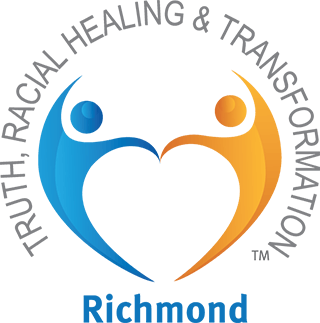
Utilizing the therapeutic effects of creativity, from 2017-2020 TRHT Richmond focused on narrative change and brought together local artists: unearthing historical narratives, telling truths about the community’s past and engaging local residents in envisioning a more equitable future. Artists shared these narratives and visions through visual art, movement and yoga, documentaries, books and websites and covered subjects such as food injustice, wellness, the local history of Black women’s labor, gentrification, obesity and self-esteem. Trainings encouraged faith leaders to bring racial healing messages and racial equity practices to their congregations and communities.
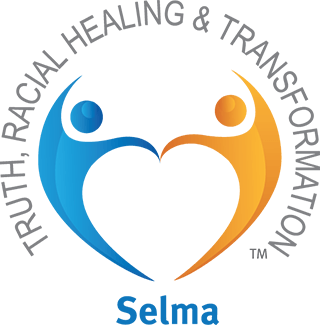
TRHT Selma is addressing all five pillars, grounded in wide community engagement through a Grassroots Advisory Team and a Multi-Sector Team. Collaborators are utilizing innovative approaches to combining racial healing with narrative change including: a series on the history of race in the U.S. paired with Kingian Nonviolence trainings; a Know Your Roots project related to discovering ancestors’ roles in history; and a Middle Passage reenactment. With the separation and law pillars, TRHT Selma focuses on restorative justice and nonviolent conflict resolution in local schools, community-police dialogues and conflict resolution processes to reduce violence and incarceration. Economy work centers on developing a sustainable tourism industry in Selma, supporting entrepreneurs, training women in financial literacy and developing an organizing model to confront gentrification and displacement.
content_copyVisit Website
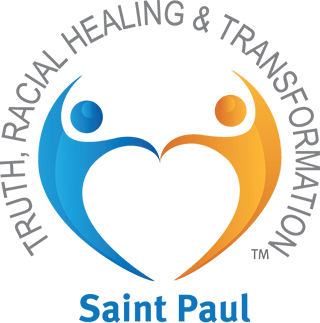
From 2017-2019, TRHT Saint Paul focused on narrative change, forming a partnership among six media outlets. Partners included large, well-resourced, nationally known organizations and small, community-led organizations. Their collaboration offered media professionals an opportunity to meet, build trust and learn about the impact of negative narratives on people and communities of color. TRHT Saint Paul also engaged young Black men and boys in designing a media campaign named for Gordon Parks, the internationally known photographer and filmmaker who first picked up a camera during his teen years in Saint Paul. The mentorship program assisted youth to develop new internal narratives and visions.
content_copyVisit Website
